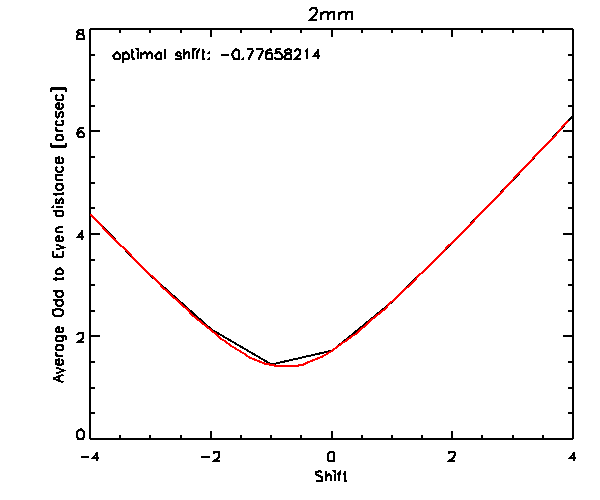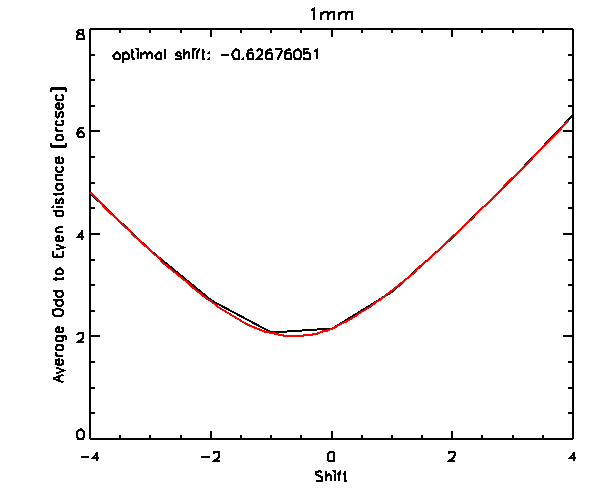Context: A first correction for time delay between data samples and pointing information was done during the run based on 2mm data. All data have been reprocessed using this shift. The question was if it could be improved and if it was the same for the 1mm. Answer is that not further improvement should be expected.
Method: Looking at our best map (best focus and weather conditions: Mars scan 0218, June 4th), I compared centroids positions determined from either odd subscans or even subscans only. The distance between the two sets of centroids varies with the number of samples by which I shift the timelines. The minimum distance is obtained for the optimal shift. A parabola is fit and its minimum is found to a fraction of sample at both wavelength, therefore leading to the conclusion that the current shift is as good as it can be without data interpolation. The same analysis was performed on two other scans the previous days and variations are still less than 1 sample.
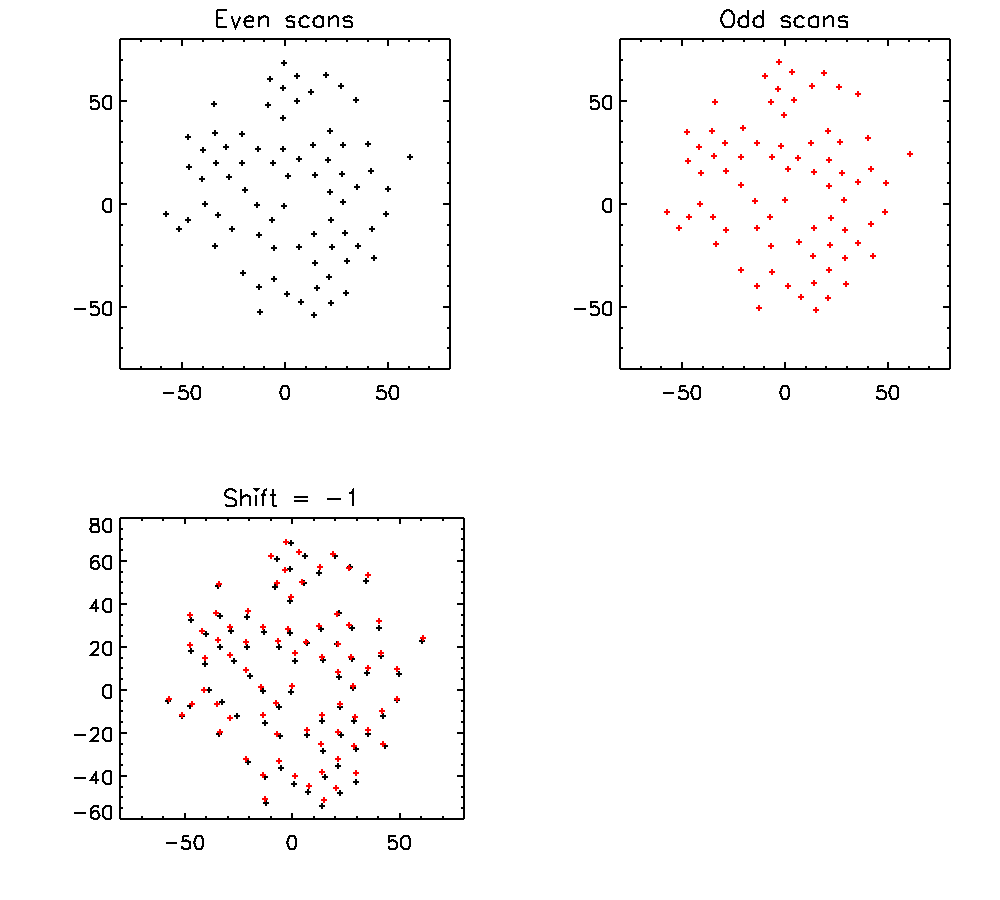
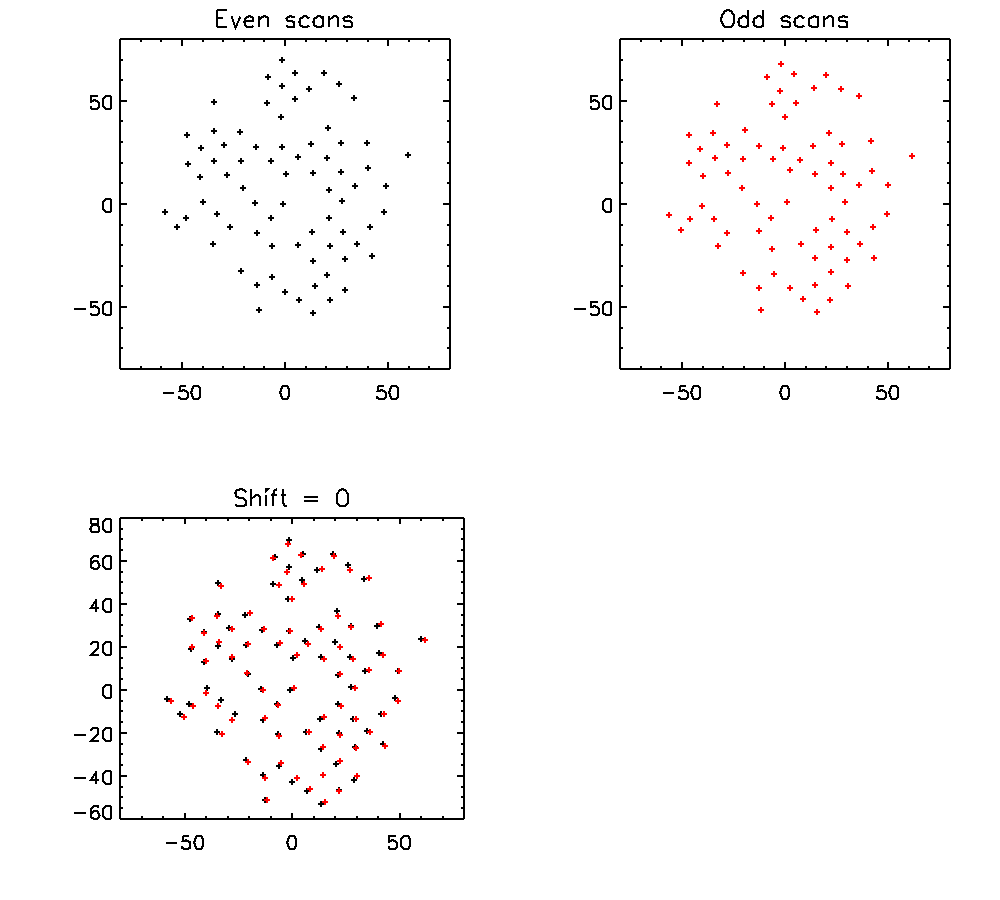
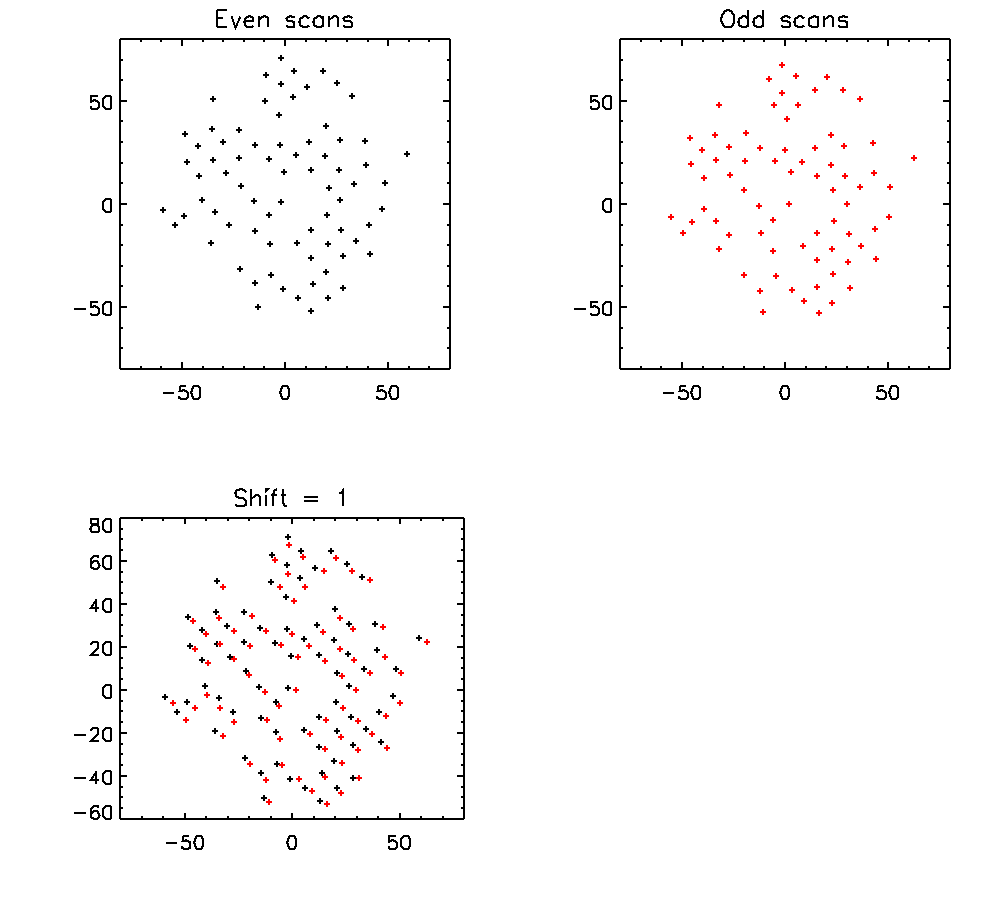
On Mars0218, June 4th:
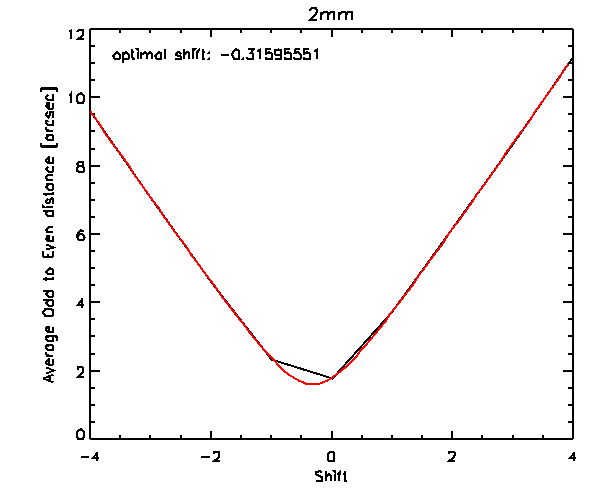
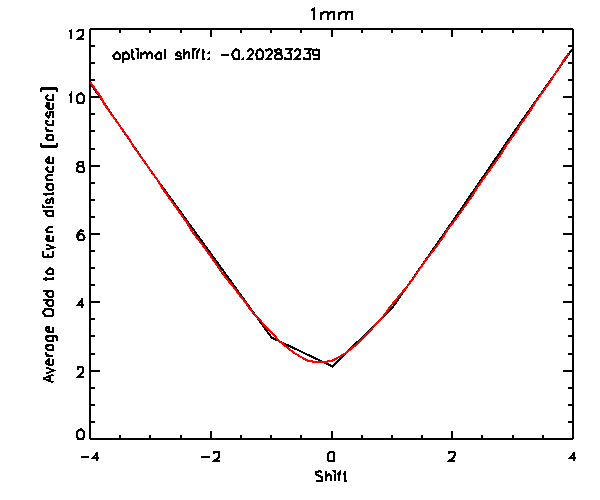
On Mars0152, June 3rd:
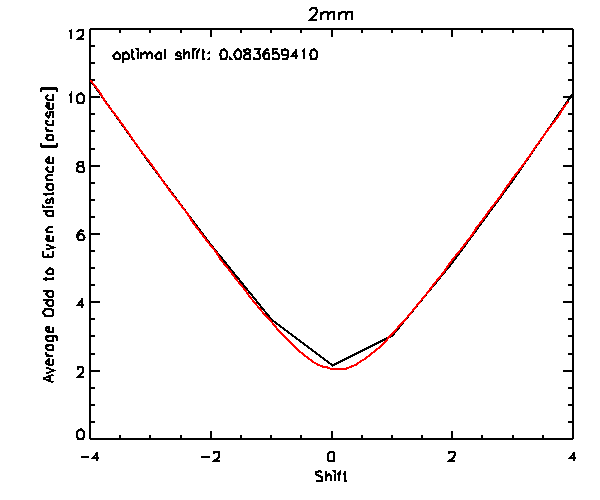
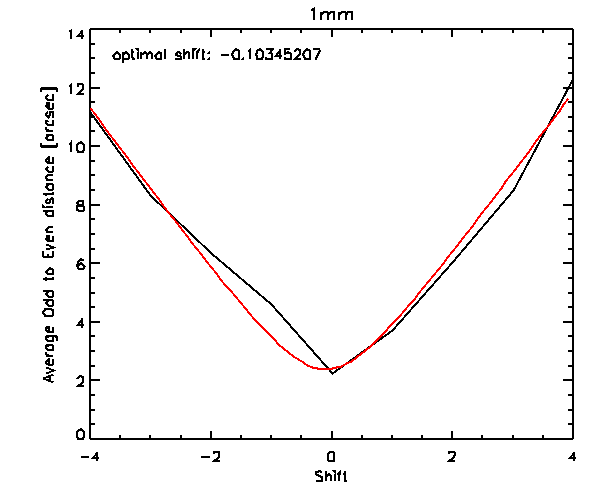
On Mars0152, June 2nd:
